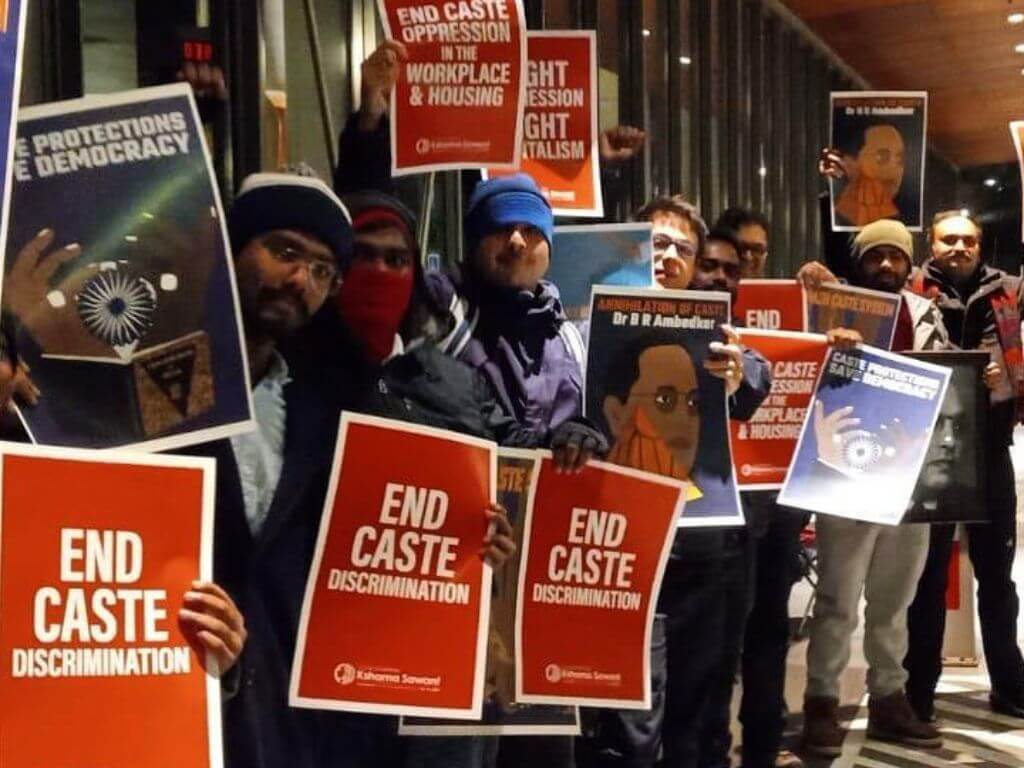On February 21st, Seattle made American history by becoming the first city to pass a resolution outlawing caste-based discrimination in a six to one vote. The legislation which was written and introduced by Seattle City Council Member Kshama Sawant, the new law will prevent anyone from being discriminated against according to their caste. This isn’t the first time that caste-banning has happened in an American space. However we take a closer look at what this legislation means, those who are opposed to it and how this is a ground-breaking move when it comes to the overall human rights conversation.
When it comes to discrimination practices rarely is caste ever entered into the conversation. However in recent history there has been strides in ensuring that those who are from lower castes are free from any sort of discrimination which may deter them from developing a healthy relationship and progressing in society.
The centuries old tradition of relegating one’s birthright into a layered societal structure is dominant in the South Asian (deeply embedded in Hindu philosophy) culture. However it is also evidenced in the cultural practices in “African, Middle Eastern and Pacific communities”.
Which is why Seattle’s move, with the charge led by Seattle Council Member Kshama Sawant is an historic move on just so many levels.
Anti caste discrimination awareness has been slowly been making its way across the academic landscape of America as well. In 2019, Brandeis University was the first to ban caste discrimination in their institution. That was followed by other universities including California State University, Brown University and University of California, Davis.

On the political front the California Democratic Party added caste as a protected category in its code of conduct in 2021, stating: “California must lead in the historical battle for caste equity and ensure we acknowledge the need for explicit legal protections for caste-oppressed Americans.”
Seattle on the other hand is the very first city in the United States to pass a policy giving caste human rights protection, in its clearest legal form.
When it comes to legality of caste discrimination it is worth noting that in 1989, India did indeed pass a bill banning caste discrimination many years ago, it is rarely called into action. In India 17% of the country’s population are Dalits (also known as “The Untouchables” the lowest ranking caste), were victims of a crime every ten minutes in 2020, according to The Washington Post.
Seattle’s move is a turning point mainly because of the large South Asian American population.
Discrimination Under The Radar
Equality Labs an American activist group which has been pushing to highlight caste discrimination reported that in 2018 caste discrimination was rampant among South Asian Americans. Director of Equality Labs Thenmozhi Soundararajan told The Washington Post she received hundreds of complaints from American workers who experienced “caste slurs in workplaces, bullying and harassment, sexual harassment, demotion to retaliation and even firing.”
In their survey of 1500 respondents 67% of American Dalits reported to have experienced unfair treatment in the workplace. Where 41% reported facing caste discrimination in U.S. schools and universities.
Caste Discriminations & The Courts
2020 has been an active year when it comes to court filings. First, there was a case filed by the California Department of Fair Employment and Housing against Cisco in 2020. It was alleged that two upper caste employees at the company subjected a Dalit employee, who was identified by the pseudonym John Doe, to caste discrimination accusing the Dali employee of not being qualified enough to gain his employment. That same employee alleged that he was left out of meetings, lost out on promotions and was retaliated against by his employer for making a complaint about his treatment. In October 2021 it was refiled with the California Supreme Court. Cicso filed a demurrer asking for these charges to be dismissed as caste is not protected under the Fair Employment and Housing Act of California. The Ambedkar International Center along with other pro-Dalit activist organizations filed an amicus brief, arguing that the California law prohibit caste discrimination.
The tech space is looking at this court case very closely.

Also in 2020, 30 Dalit women engineers who were employed at various tech companies in Silicon Valley including Google and Apple published a statement alleging caste discrimination at work. But because caste was not a protected class they were not able to raise their concerns. This led to The Alphabet Workers Union (which represents Google parent company Alphabet Inc. employees), urging the company ensure that caste discrimination be banned in all of their employee policies.
Apple on their other hand did update their general employee conduct policy to “prohibit discrimination on the basis of caste, alongside categories like race, religion, gender, age and ancestry”.
In May 2021, a federal lawsuit alleged Bochasanwasi Shri Akshar Purushottam Swaminarayan Sanstha Hindu a organization, brought in over 200 lower-caste workers to New Jersey and forced them to work for as little as $1.20 an hour for several years to build a sprawling Hindu temple.
Women Bearing The Brunt
The 30 Dalit engineers mentioned above were women. And women are one of the most affected when it comes to caste discrimination. In India, Dalit women face unsurmountable challenges. They comprise 16% of the country’s female population and according to Dr. Suraj Yenge, author of Caste Matters, the Dalit woman “is a victim of the cultures, structures and institutions of oppression, both externally and internally. This manifests in perpetual violence against Dalit women.” This belief system and gender inequality is easily part of the caste system practices among the South Asian communities.
The Dissidents
In response to the Seattle law there has been outcry of reverse discrimination from various American Hindu communities. The Hindu American Foundation released a statement condemning caste discrimination but did criticize the Seattle Council and Sawant for “singling out of South Asians”. Their concern is that this law would further enhance legal scrutiny. Samir Kalra, the managing director quoted that the council’s move would “institutionalizing bias against all residents of Indian and South Asian origin. Before the vote more than 100 businesses and organizations co-signed a letter urging the Seattle council members to vote no. In their letter they stated that legislation if passed would “peddles bigotry and single out the South Asian community by using racist, colonial tropes of ‘caste’ and ensures that our community is subject to special scrutiny” echoing the outcry of reverse discrimination from various American Hindu communities.
However with the six to one vote in Seattle council, the growing organizations that have or actively looking to protect caste in their respective institutions, the issue of caste discrimination as part of a larger human rights conversation will continue to be had.
As Sawant tweeted right after her historic legislation: “It’s official: our movement has WON a historic, first-in-the-nation ban on caste discrimination in Seattle! Now we need to build a movement to spread this victory around the country.”
Main Image Photo Credit: www.twitter.com
Hina P. Ansari
Author
Hina P. Ansari is a graduate from The University of Western Ontario (London, Ontario). Since then she has carved a successful career in Canada's national fashion-publishing world as the Entertainment/Photo Editor at FLARE Magazine, Canada's national fashion magazine. She was the first South Asian in...














































































































